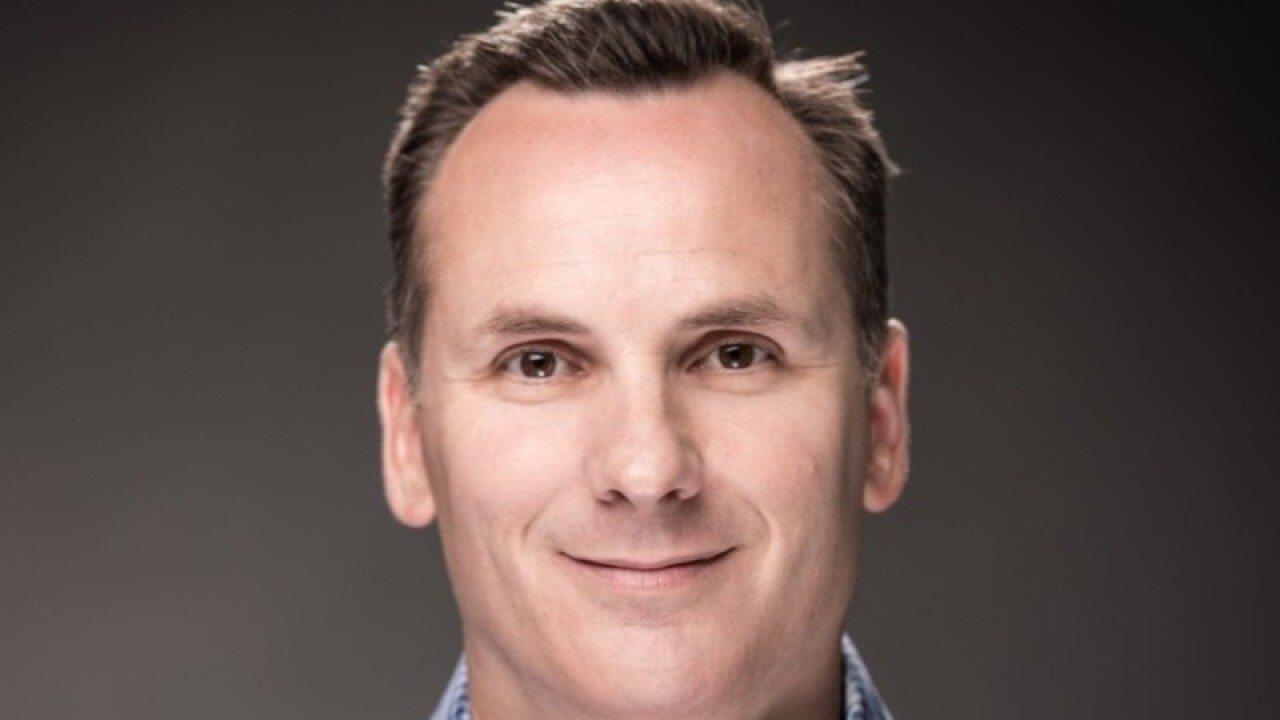You have to be a little envious of Geoff Bacino. Whether or not he is ever actually is appointed to the NCUA board (see story, page 1) to replace current chairman Norm D'Amours, Bacino will, for the short term at least, be like the back-up quarterback who hasn't played and is wildly popular because he's not the starter.
Imagine for a moment if talk radio gave up sports or national politics for a day and instead focused on little-known government regulatory agencies:
Radio Host: Paul from Pawtuckett, welcome to the show
Paul: Yeah, well, I just wanna say I've had it with this whole NCUA board thing. It's time for D'Amours to retire, his contract is up, man. He's not had a good year. I think it's time for some new blood, this new Bacino guy. I'm protesting. Until he's gone I'm not gonna buy any more of those NCUA board meeting videos. And can you take me out with one of those sound effects, like a toilet flushing or something, that idiots like me who listen to talk radio all day find amusing?
Radio Host: Thanks, caller, you bet. (Flushing sound). Our next caller is identifying himself only as "Mr. D" from Alexandria, Virginia.
Mr. D.: I'd like to register my disagreement with that last caller. Frankly, I think the NCUA chairman has done...
Radio Host: That's a strange, muffled voice you have, caller. Hey, Mr. D, are you...
Mr. D: Uh, I gotta go.
The politics of NCUA board appointments are interesting not just because of the direct effect appointees have on credit unions and their members (and that includes state-charters), but because the appointments allow credit unions one of those up-close-and-personal looks at how the political patronage system works. That's not so much a criticism as an observation that no credit unionist following the story can ever again read a newspaper story about a political appointee to some other post without recognizing for a moment all that goes on behind the scenes of such appointments.
The same holds true for the NCUA board and Bacino's nomination. While politics were involved, it would be difficult for credit unions to complain. This isn't someone who threw a Hollywood fundraiser for the president and who is now getting his reward with a job overseeing an industry he's initially confused with something to do with labor unions. Bacino has extensive experience in credit unions (he's been a lobbyist, his father worked for NCUA and within the movement, and he started a trade group for state- chartered credit unions that eventually merged into NASCUS). But all of that experience is both a pro and con, according to Bacino.
"If I were someone new and knew nothing about credit unions, everybody would say 'Here's what's hot and important.' The fact that I'm familiar leads to questions like 'How do you feel about this and that?', and that's a bit unfair."
Bacino's probably right about that, but as he mentioned "unfair" and as I am in the press, I felt obligated by law and profession to ask him about the hot-button issue that has long been championed by the man he could replace. "What about serving the underserved?" I asked.
"I have until there is a hearing to share my position on that," responded Bacino. "I think this is the first time a board member will have come into office when there are so many big issues to be dealt with right away. I expect all those questions if there are hearings."
Bacino did note that during his tenure running the National Association of State Chartered Credit Unions that group offered free membership to any credit union under $5 million in assets. Because it was essentially his group/company, that decision meant money out of his pocket, which Bacino described as doing more than just talking a good game.
If Bacino does join the NCUA board, he said he will bring to the job three primary strengths: "I'm a pretty good listener. I think I'm fairly cooperative. And I have a good knowledge of the credit union movement." He added he brings a good understanding of state charter issues, but was quick to add he doesn't feel there needs to be any argument over state vs. federal charters.
What Bacino said he won't bring to the board is a grudge. "I won't quash any debate that doesn't agree with me," he offered. "We'll have our debate and if I win 3-0 (board vote), great. If I lose 1-2, that's OK, too. When the debate is done, it's done."
Maybe that's OK with him, but what about us in the trade press? What about Paul from Pawtucket? What will we all have to go back to?
Paul: You know, I was at the chapter meeting last night and, daggonnit if they didn't have those chicken fingers again!
Radio Host: What? None of those bell peppers on the little wooden skewers! We're taking your calls right now...
Frank J. Diekmann is Editor of The Credit Union Journal. He can be reached at P.O. Box 4387, W. Palm Beach, FL 33402, or diekmann flinet.com.





